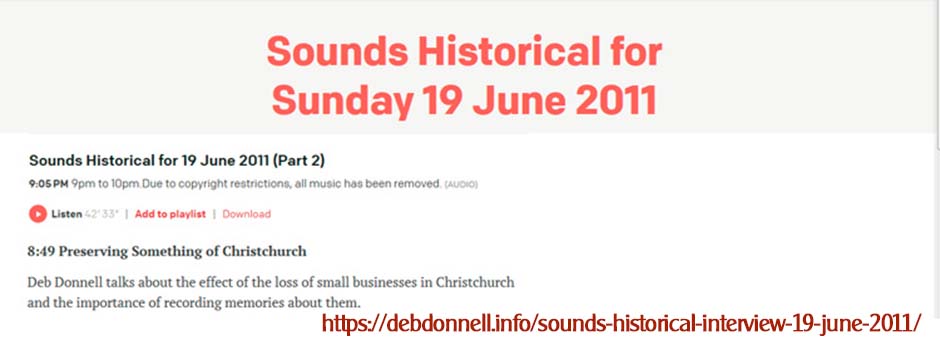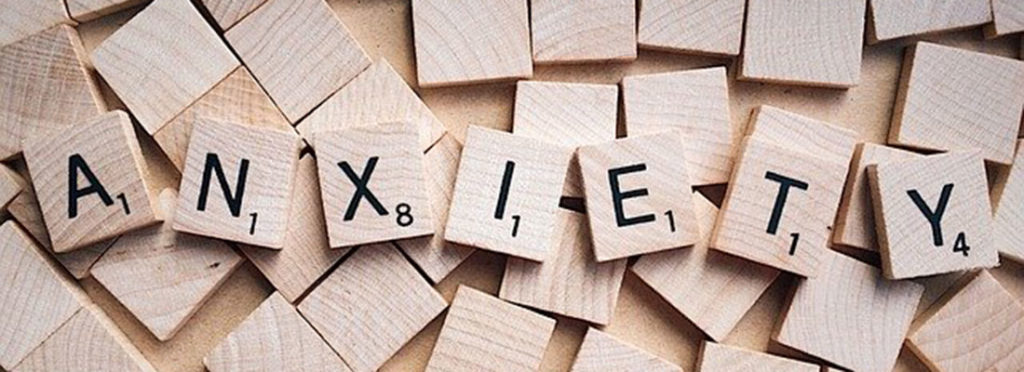How to Manage Covid-19 Stress is an article updated from a Café Reflection I wrote on 21 January 2011. The original title was “What can you do about your quake stress?” For the reason that Canterbury had ongoing trauma from the 4 September 2010 Darfield Earthquake. Little did I (or anyone else) know that a month later Christchurch would be impacted by an even bigger mass trauma event, the Christchurch Earthquake.
Furthermore, with Covid-19, the world is living through a global mass trauma event. For example, approximately one-third of the world’s population is living in a stress-inducing lockdown or quarantine situation. Source: World Economic Forum: Lockdown is the world’s biggest psychological experiment – and we will pay the price.
Therefore, after reading the article I’ve linked to in the last paragraph, I remembered my quake stress article.
Consequently, I realised that my past experiences, along with my recent training as an NLP Master Practitioner, may possibly be of some help to others. So I invite you now to do a little bit of time travelling with me. Most importantly, I’ve updated what I wrote 9 years ago, with lessons I’ve learned since.
Lessons from History to Manage Covid-19 Stress
On 21 January 2011, Christchurch was woken at 6:03 a.m. by a 5.1 Magnitude shake centered out near Tai Tapu. To clarify, I’m going to refer to them as shakes. Because in 2011 the survivors had an ongoing earthquake/aftershock debate! On that date, nearly twenty weeks had passed since the “Big One” (the Darfield Earthquake). As a result, everyone was feeling very stressed. So I shared my top five stress coping techniques.
1. Acknowledge How You Feel
Firstly, don’t bury your feelings. Either write them out in a journal, or be brave and share your fears with others. Because we are all anxious. Consequently, once you open up to others, you will quickly learn that they feel the same.
For instance, when we get a shake coming through, my heart beats harder and faster. And I am almost paralysed with fear. As a result, it takes a while to calm down and settle back to what I’m doing. So, I don’t like this feeling of helplessness at all.
However, one way we cope is to make a game of guessing the magnitude, location and depth. This is fun to do with a group. Because it helps focus on something more than your feelings of anxiety. Best of all, it helps fill in the time between the shake and the event appearing on Geonet.
Covid-19 Update: Become A Scholar of Your Thoughts and Feelings
Covid-19 doesn’t have the surprise attacks of earthquakes and aftershocks. But it does have the news and social media shock announcements. As a result, when you go online, you are often bombarded with overwhelm, anxiety, and other negative input. Alternatively, you may have people in your bubble who react negatively to events. And their way of coping is to share their thoughts and feelings with you. Unfortunately, this may amplify your own anxieties.
Therefore, it’s important that you become a scholar of your thoughts and emotions. In other words, regularly check in with what you are thinking and feeling. Notice what you notice about how you are reacting to external news and communications.
For instance, I notice a tightness in my chest, and pressure in my frontal lobe. And I get caught up in a negative spiral, either of my own making or whoever I’m communicating with. As a result, I am faced with two choices. Firstly, I can react with negative emotions or thoughts. Or alternatively, I can take a step back, acknowledge how I’m feeling, and respond accordingly.
If the trigger event is online or via some other digital form of communcation, my response is to step away from the screen. On the other hand, if the trigger event is due to something someone in my bubble has said or done, I have a bigger challenge! After all, I need to acknowledge how they are feeling too. So, I do something to break both our negative states. In other words, I interrupt the negative spiral by saying something like, “Yup, this sucks, but it’s out of our hands. Let’s look for something that we do have control over.”
However, I do realise that this is way easier said than done!
A Personal Example: Acknowledging Feelings about a Privacy Breach
For instance, this week, I came across a photo collection online. Many of the images have been unlawfully obtained and breach people’s privacy. The collection was donated by a professional photography agency who has now gone out of business, and has been published by a very reputable organisation. The organisation may not even be aware that a large percentage of the collection was not legally owned by the agency. Possibly both parties believe they are doing a great public service. However, under New Zealand legislation, neither the donor agency, or the organisation have legal rights to the images commissioned for private events or purposes.
Likely, the persons representing the agency or organisation will claim they didn’t realise this. Howvever, ignorance is not an acceptable defence in New Zealand’s justice system. Furthermore, anyone who has studied the Copyright Act would quickly understand that people’s rights to privacy have been breached.
The collection numbers thousands of images, and include several of me taken at private events. And like every other person attending a private event, I had an expectation of privacy. In other words, I never thought these images would be available for the general public to view. Hence why I believed harm had been done and our rights to privacy breached.
Everybody Needs to Understand the Individual’s Rights to Privacy
Consequently, I went into a very negative state over this theft of images and violation of my privacy. While I acknowledged to myself how I was feeling, I also explained to others who had been at those private events that our privacy has been violated. However, they told me they weren’t worried, because the images were decades old, and told me that I should “let it go.”
“Letting it go” is not so easy when you understand the law, work in publishing and cyber-security. This helped me identify that a crime has been committed. It was my responsibility to inform other victims that their privacy had been breached. They responded that we should turn a blind eye to the crime and breach. So not only was I upset about the breach. But I also was upset because my expertise and knowledge of the matter was being dismissed.
Certainly, this proved a good challenge for me to work on my reactive thoughts and feelings. Because my thoughts and feelings are about how I reacted to other people’s actions and communications. And I cannot control how other people act or behave. Just like I cannot control when the earth shakes, or how the Government’s decisions over Covid-19.
To Manage Covid-19 Stress, Support Don’t Rescue
One of the best pieces of advice I have received from our business mentor is that we are to “support, not rescue” people. In other words, if people refuse to listen to your recommendations or expertise, walk away.
As a result, I had to take time out and step away from everything outside of my private bubble. That’s an interesting exercise! You quickly learn who is missing you, and therefore concerned about you.
Firstly, I acknowledged my feelings. Then I focused on the actions I could take to address the crime. Consequently, I decided that I didn’t have the energy to enter into a David and Goliath legal battle with the organisation. Instead, I chose to “settle” for them removing all images of me. They now have done this. That particular stress has now melted away.
Consequently, the lesson here is that I can only offer my expertise to support others. If that offer is refused, then that’s okay. I’ve tried. Provided I have protected myself and my privacy, then I can’t do much all. Because it’s not selfish to defend what’s yours or to acknowledge how you feel. By doing this, you free yourself up to focus on solutions to solve the problem. You then regain some degree of power in an overwhelming and anxiety producing situation. And it also builds strength for the next challenging event that comes along.
2. Remember, the Current Shock Danger Has Passed
It may not feel like it, but once things stop rocking, rolling, shaking and rattling, the worst is over (for now). Tell yourself that you are safe and have got through one more! Yippee! Then take action and check your environment for immediate danger and damage. If you have children or pets, reassure them that all is okay. Reaching out and helping others, even if it is just your cat, helps to alleviate some of your own anxiety.
Covid-19 Update: Focus on What You Can Control
It’s important to manage Covid-19 stress by focusing on what you can control. Because there is so little of what is happening that we personally do have control over. Firstly, there is so much unknown about the virus. Secondly, there is a tsunami of conflicting information from the experts and governments, as well as propaganda, fake news, conspiracy theories, and so on. Thirdly, whether we trust the decisions being made by our governments, we have to abide by the law. Even the ones that have been rushed into legislation under the guise of the Covid-19 emergency.
So our current danger with Covid-19 is quite different to that of an earthquake. But, after 3 weeks of being locked down, most of us are reasonably “safe at home” for now. Therefore, when you do have to go out into the world, focus on what you can control. Wear a mask. Wash your hands when you can. Carry liquid gold (hand sanitizer) with you and use it often. Practice social distancing. Yes, it all sucks. But this is the new normal and if it keeps us healthy, and those around us healthy, then do it.
In addition, also focus on what you can control in your bubble. Build up your immunity. Eat as well as you can afford to. Exercise daily. Learn new skills. Support each other. Encourage everyone to focus on positive things. Look for opportunities for earning income in the future. Brainstorm ideas. Research possibilities. Make plans for the new future (whatever that may look like). There is a lot you can control. Most importantly, develop the skills to manage your Covid-19 stress by managing your thoughts, feelings, actions, and communications. NLP is great for that. I am guiding people through self-development and some basic NLP training at KESWiN™ Academy.
3. Check Into Your Support Networks
Regularly text or call family and friends and make sure that they are okay (especially if you know that they are on their own). Try to build positive, supportive communities, both offline and online. If you’re scared, let them know, and don’t be afraid to ask them how they are feeling. Listen to what they say. And if you can help them see things in a more positive way, do so.
A word of advice – try to avoid negative environments. I can’t believe the comments people place on the latest online news articles about our aftershocks. It’s quite clear that they have never experienced anything even close to the ongoing trauma of a natural disaster and therefore have no sense of empathy. Forgive them for their ignorance, and move on quickly to something positive.
The same goes for people who are pessimistic and focusing only on the doom and gloom the media feeds us. Remember that news feeds off fear and negativity. The more that they sensationalise events, the better the ratings.
Also consider that everyone in Canterbury is going through the same experiences as you. So their ability to provide the level of strength and support you need has been compromised. If you are finding that you’re not moving forward, seek support groups that are designed to help people in our situation. These may be offline or online, and should be run by qualified professionals or volunteers with experience associated with disaster support.
Covid-19 Update: Choose Your Support Networks Carefully
I cannot stress this enough. Because this is a global mass trauma event, everyone in your support network is struggling to manage Covid-19 stress. So, it comes down to first being selfish, in order to be self-less. If there is one area I would recommend you start upskilling yourself in, it’s this. Learning how to manage your thoughts, feelings, actions, and communications. In other words, learning to respond in ways that empower you, rather than react in ways that disempower you.
Because, as I said in tip 2, we need to focus on what we can control. And part of that is who we hang around with. If people in your bubble, or your wider network aren’t supportive, then limit your time with them.
Yes, I know that it is hard to do inside your bubble. But be firm about boundaries and who you let into your world.
Create Your Personal Bubble within Your Bubble
There needs to be one place where you can go to be yourself. Therefore, create your personal sacred or retreat space within your bubble. Even if it’s only a corner of a room, with a privacy screen, make it clear it is yours. And that you are not to be disturbed when you are in it. Use headphones and listen to your favourite music when you’re in that space. Or to be able to watch video streaming programmes you like. Most importantly, put a “Do Not Disturb” sign on the door (or privacy screen entrance).
Believe me, by learning how to step into your private bubble within your bubble, you will get the much needed space you need. As a result, you can be your own support network. Best of all, you are free to safely reflect, recharge, and restrengthen.
Therefore, by being selfish and taking time out for yourself, you are better positioned to support others. Because good support networks have an ethos of “help and be helped.” But in Covid-19 self-isolation, we also need to offer our support where it may not be reciprocated. This is where having the skills to give without expectation of reciprocation is valuable. As a result, you will be able to better manage Covid-19 stress!
4. Become An Avid Student of How Things Works
What do I mean by this? For a start, before September 4, 2010, who in Christchurch knew what liquefaction was? I didn’t, and yet I came across my LIM (Land Information Memorandum) report for my property, and there it is in black and white. I had been warned. Of course, I never for a moment thought a natural disaster would happen to me, so ignorance seemed like bliss until September 4.
Since then, I have become a student of earthquakes. I have read opinions from experts on both sides of the debate about what causes earthquakes and whether they can be predicted. I’ve listened, read, learned and observed, and taken time to form my own opinions. It’s helped to alleviate some of my stress. Though I’ll confess I am still rather nervous about what the future holds. The trick is to keep that fear at a manageable level so that I am prepared for and not paralysed by the unexpected.
Covid-19 Update: Learn to Identify Fact from Fiction
Fast forward ten years from the earthquakes. We never thought we’d live in times as chaotic as these! The Internet has become a roiling ocean of fake news, conspiracy theories, conflicting information, propaganda, and confusing advice even from reputable sources. This adds to our feelings of mistrust, anxiety, overwhelm and despair. Likewise, it makes it difficult to manage Covid-19 stress.
However, this is a great time to become an avid student of history, as well as about how things work. Because history tells us that every time new technology is introduced (printing presses, still photography, phonographs, radio, moving pictures, television, and now the Internet), enlightenment, propaganda and chaos follows. Therefore it should not be surprising that we are experiencing a World Wide Crisis, driven partly by the tsunami of information available on the World Wide Web.
For some tips on how to identify fact from fiction, read my previous post: Acronym for Fear Factual Evidence Analyse Respond. It won’t give you certainty about what the future holds. But it will probably help you manage your fear a little better.
5. Treat Yourself Gently, With Compassion and Love
However you react, do not beat yourself up over it. Because in highly stressful and traumatic situations like an earthquake, the primitive brain takes over. In other words, flight or fight kicks in and we react, rather than respond.
Therefore, from my own experiences, and research, it is well within the scope of stress ‘normality’ to:
- feel shocked and numb;
- have a disconnect from life and people;
- experience intense roller-coaster emotions (i.e. irritability, anxiety, or depression);
- have flashbacks:
- become easily startled;
- find it’s difficult to tolerate others;
- lack ability to concentrate, etc.
And then there’s the physical symptoms, such as headaches, nausea, chest pain, insomnia.
It’s also possible that you feel like withdrawing from life, people or avoiding activities and places you used to enjoy.
So, don’t be alarmed. It’s okay. Because some or all of these are to be expected. Just be aware that if they continue too long, you should probably seek help from a mental health professional.
Covid-19 Update: You Are Normal
Accept that you are a someone who is reacting like a normal human being, and that you are not expected to be a superhero! Therefore, treat yourself well, with compassion and love. Please avoid medicating yourself with drugs or alcohol. Adopt coping strategies such as establishing new routines, eating healthy and regular meals and exercising.
If you are having trouble sleeping, then learn some relaxation techniques you can implement 30 to 60 minutes before bedtime. Such as stepping away from the screens, and reading a fiction book.
Or once you get into bed, focus on breathing slowly and deeply. Then work your way from the top of your head, right down to the tips of your toes. Name each muscle or body part, and tell it to “just relax”. Feel yourself slipping deeper and deeper into the mattress, as you relax even more. If your thoughts try to slip away from this meditative process, bring them back to focusing on relaxing and breathing.
One of the best strategies I can recommend to manage Covid-19 stress is to take time out and do things you enjoy. Immerse yourself in positive, uplifting pursuits. Some ideas:
- watch comedy;
- connect online with supportive friends;
- take action to make a dream happen;
- read a book;
- watch and listen to inspiring and motivating content;
- listen to or make your own music;
- do something creative, such as draw, write, paint, or bake;
- dance or exercise;
- sit and watch animals, birds, or insects going about their day;
- imagine or pretend your a child at play (or actually play with your children!); or
- any other fun, playful, or creative activity you can think of.
Above all else, make sure you live in the moment, have fun and keep on smiling and laughing.
Conclusion
In conclusion, we’re all in this together. Covid-19 and how governments around the world are reacting is a global mass trauma crisis. Consequently, there is very little we have control over around the decisions of lockdown. In the same vein, the ongoing impact it will have on people’s lives and the economy is a huge unknown. But there are things that you can do now, to manage Covid-19 stress. For instance, the above tips I’ve given you are a starting point. Furthermore, I encourage you to find people who can train you to strengthen and empower your mental states. Possibly you’d like to join me inside KESWiN™ Academy where I can guide you on a self-empowerment journey. Or maybe you prefer to follow and connect with me on Facebook. Whatever you choose to do, stay safe, healthy, and real!
Start empowering others by sharing this article
Other Articles

Embrace Your Creativity: Harnessing the Free Power of Writing
Harnessing the Power of Writing for Personal Freedom Are you ready to embrace your creativity and experience the power of writing to set yourself free? In a world that often

What is Freedom and Do You Need to Fight for It?
“What is freedom and do you need to fight for it?” This is a question that is on my mind 24/7 these days. Especially with the huge amount of division,

Sounds Historical Interview 19 June 2011
Sounds Historical Interview 19 June 2011 Sounds Historical with Jim Sullivan on Radio New Zealand interviews Deb Donnell. Date 19 June 2011. I was interviewed about the book I was

